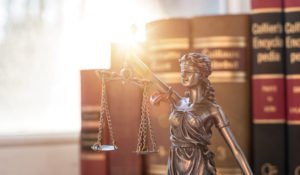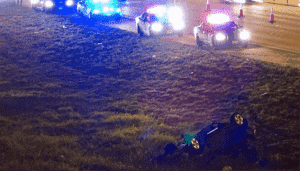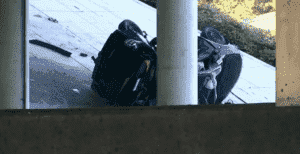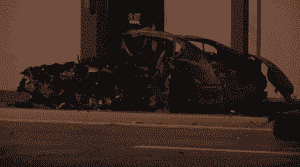
In Florida, unsafe premises and property negligence can result in serious injuries, missed work, and even death. If you have suffered injuries on someone else’s property, that property owner or manager could be liable.
An unsafe premises and property negligence lawyer in Miami, FL, can help you fight for compensation. The premises liability lawyers at the Law Offices of Anidjar & Levine can tell you more about your legal rights. Schedule a free consultation by calling 1-800-747-3733.
Types of Accidents That Could Trigger a Premises Liability Claim
The most common types of premises liability claims arise from dog bites, swimming pool accidents, assaults due to negligent security, and slip and fall accidents.
According to the National Floor Safety Institute, falls are the leading cause of emergency room visits and represent the primary cause of lost days from work. Falls are also the leading cause of occupational injury for people aged 55 years and older.
If you suffered a fall or another accident because of unsafe premises, our attorneys can help you prove negligence and pursue compensation.
Property Negligence and Premises Liability
If the property owner is responsible for your accident, you may recover compensation. The first step in analyzing your claim is determining your relationship to the property owner.
Property owners owe a duty of care to their invited customers, guests, patrons, passengers, clients, and other guests on their premises. Not all guests enjoy the same level of protection, however.
Trespassers
In most cases, property owners do not owe a duty of care to adult trespassers. However, if there are items situated on the property that children might find attractive, such as a trampoline, a swimming pool, or things that could look like toys, the property owner might be liable if an injury occurs because of one of these items.
Licensees
Unlike a trespasser, a licensee has the property owner’s permission to be on the premises. Property owners have a legal responsibility to keep licensees reasonably safe while they are on the premises. If a property owner fails to repair a dangerous situation and does not provide a warning to licensees about the hazard, they could be liable for any accidents that occur.
Invitees
Invitees comprise a third category of claimant in this type of case. Invitees are on the property in response to an express invitation. Like licensees, property owners owe invitees a high duty of care.
Where Unsafe Premises Accidents Occur
These accidents can happen anywhere. However, we have seen some common locations in our clients’ cases, including:
- Shopping malls;
- Apartment complexes;
- Restaurants;
- Entertainment venues;
- Hotels;
- Workplaces;
- Grocery or department stores;
- Parking lots and garages;
- Hospitals;
- Transportation terminals;
- Nursing homes;
- Schools;
- Cruise ships; and
- Clubs, taverns, or bars.
Regardless of where your accident occurred, we will build a convincing case that the property owner breached their duty of care—and you suffered injuries as a result.
Establishing a Breach of the Duty of Care
Property owners and those acting on their behalf must take reasonable measures to protect their guests. What is reasonable depends on many factors:
- The knowledge the owner had about the risk;
- Whether the accident or incident was foreseeable;
- Whether the owner provided adequate warnings about the risk;
- Whether any other accidents had occurred previously and, if so, measures taken to prevent future incidents;
- Whether the person responsible for the premises made unsafe changes to save money;
- Whether staff systematically inspected the area;
- Whether the flooring or lighting was adequate;
- Whether the property owner employed adequate security personnel or other staff; and
- The applicability of any local, statutory, or regulatory building codes.
This is far from an all-inclusive list, but it should give you an idea of how complex these cases can be. If a property owner owed you a legal duty and breached that duty, and the breach was the direct cause of your injuries, calculating a fair amount of compensation is your next step.
Occasionally, some venues require guests to sign waivers in an attempt to prevent injured patrons from filing claims. Not all types of harm are waivable, however. If you signed a waiver or agreement, speak to us about your injuries. You may still be able to collect compensation.
Your Compensation for Property Negligence
After this type of accident, you could be eligible for a variety of damages. These include economic and non-economic damages.
Economic damages have a specific dollar value that we can prove with documentation, bills, receipts, or testimony. These can include
- Short-term medical expenses;
- Long-term care and medical expenses;
- Therapy of any kind;
- Future medical expenses within a reasonable degree of medical certainty;
- Lost wages; and
- Lost future earning potential.
Non-economic damages are significant but are not easily computed with documentation or testimony. These may include:
Emotional distress, such as PTSD or damages related to permanent disfigurement;
- Pain and suffering;
- Loss of consortium; and
- Future medical expenses.
Survival and Wrongful Death Claims
When an unsafe premises accident results in death, the estate and surviving family members can make a wrongful death or survival claim against the negligent party.
These claims can help you can recover final expenses, as well as pain and suffering from the initial time of injury through death. You might also be able to collect compensation for any wages the deceased lost from the injury and burial or cremation expenses.
Surviving family members who depended on the decedent’s income can file claims for loss of financial support, loss of guidance, loss of companionship, and mental pain and suffering.
Punitive Damages
Punitive damages are available in limited cases where a property owner’s conduct showed a conscious disregard or indifference to safety. If clear and convincing evidence proves that the property owner had actual knowledge of the danger and the high probability that injury would result, a court could order the owner to pay punitive damages.
Schedule Your Free Consultation at the Law Offices of Anidjar & Levine.
Do not spend any more time wondering whether you have a valid claim. Set up a free review of your case with the attorneys at the Law Offices of Anidjar & Levine. We will answer your questions and keep you moving forward in an informed direction. Call 1-800-747-3733 now.












